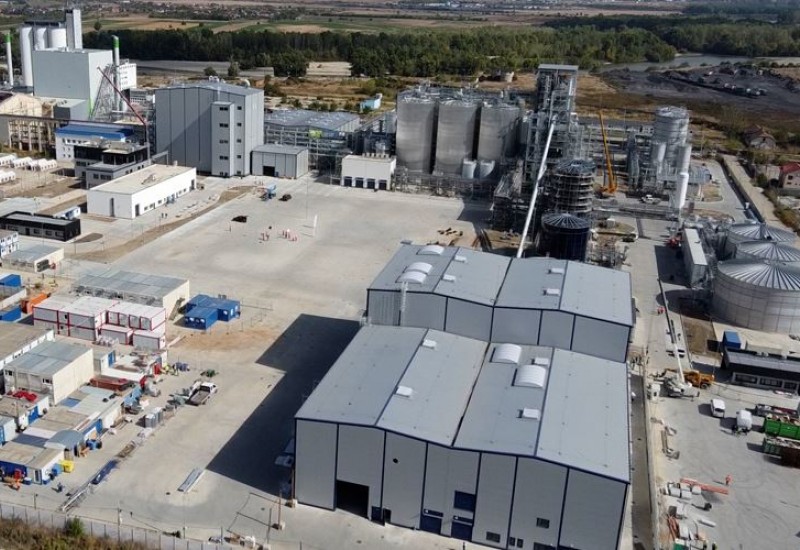Feature article - A role model for change
Harry Swan, CEO of Thomas Swan, describes the company’s approach to navigating the new post-Brexit rules and offers advice to other firms
Thomas Swan is an independent, family-run chemicals manufacturer that is based in County Durham, UK. I am the great-grandson of the founder and became CEO in 2006. The company dates back to 1926, so you might expect it to be experienced in handling change. Adapting to the UK’s new free trade deal with the EU is another challenge we have met head-on and we are confident of competing successfully in a global market.
We started early. In fact, as far back as October 2018, we took the decision to survey all our suppliers, both EU and non-EU. We did this to inform them of the potential new UK registration requirements when the UK left the EU and to find out whether they intended to register the chemicals they supplied to us, so that they could continue to supply us with them in future.
At the time, perhaps unsurprisingly, some of the suppliers were not aware of the new requirements and some were unable or unwilling to make the commitments necessary. We therefore budgeted for registering the products ourselves as a precaution, in case we needed to ‘grandfather’ them into UK REACH.
We decided to repeat our supplier survey in 2020, and the answers were much more reassuring. All of our main suppliers were now willing to provide assurances about their intentions to do what was necessary to maintain supplies.
With this clearer path ahead, the company set up conditional agreements with consultants willing to act as representatives in the EU for REACH and for Biocidal Products Regulation registrations. In December 2020, it initiated the transfer of its REACH registrations to an appointed Only Representative (OR) and this process was completed in early 2021.
Thomas Swan has also completed the ‘grandfathering’ process to register all its manufactured and imported products into the UK REACH programme. This facility is open until the end of April.
For a chemical manufacturer, another relevant new trade requirement is in relation to rules of origin. To ensure that our goods complied with these rules, we checked the Trade & Co-operation Agreement (TCA) for the rules of origin requirements and the tariff codes of chemicals for which we claim preference, to make sure they were still correct and that preference still applied.
We also checked the origin of goods purchased from distributors and checked that agreements were in place with other countries. We included the standard format from the TCA annexes for rules of origin information on our invoice documentation.
In addition, we checked our EU employee status and found that one employee did not meet the requirements, so we ensured that this person will be able to achieve them before the June 2021 deadline. We are also applying to be a sponsor in order to allow us to employ EU nationals more easily and quickly if needed in the future.
Sources of information
I believe that the initial disruption will settle down and the business community will get used to the new landscape. I advise other businesses not to panic, we will all get used to the new rules in time. There are some very useful sources of information, including the Health & Safety Executive (HSE) website, for advice on chemicals. Your trade association will also be very helpful.
We used the www.gov.uk/transition website and we also read the relevant parts of the TCA and put them in place where required. We used a freight forwarder for our exports and applied for an Authorised Economic Operator (AEO) status so as to help us avoid any potential customs delays due to cross-border checks. The best place for businesses to get support is www.gov.uk/transition. Other key pieces of advice would be:
* Speak with your lawyer and accountant for more information, or answer questions using the checker tool to generate information tailored to your business and to sign up for email updates
* New on-demand videos are available on the website to help businesses adapt to the new rules. These are searchable by sector and businesses can find out more about 18 topics that may affect them
* For any further queries please contact the business support helpline in the relevant region: England - 0800 998 1098; Business Support Scotland - 0300 303 0660; Business Wales Helpline: 0300 060 300; Invest Northern Ireland helpline - 0800 181 4422
Additional information
To make sure you are fully prepared for the UK’s new free trading relationship with the EU, follow these top five actions, all via www.gov.uk/transition:
1. Find out how you can continue to trade with the EU by following new rules for importing and exporting, including changes to customs processes and licensing. Before you attempt to move your goods, you will need to get ready to make customs declarations – these are now needed for all exports from the UK and if you are importing controlled goods. If you import goods that are not controlled, you may be able to delay making your declarations for up to six months
2. Use official guidance to understand trading arrangements with non-EU countries and check if the UK has negotiated a trade agreement with the country you will be trading with
3. If you move goods into, out of, or through Northern Ireland, make sure you check the latest Northern Ireland Protocol guidance for the specific rules on trading between the rest of the UK, Northern Ireland and the EU (in addition to global trade changes)
4. Familiarise yourself with the UK’s new trade remedies process: Businesses can submit applications via the UK’s new independent trade remedies system if they believe they are being injured by the effects of unfair trade practices or surges in imports
5. Check that your goods comply with rules of origin and that you have the required evidence to trade tariff-free with the EU: Businesses need to take action to access zero tariffs in the TCA. They must check that their goods comply with rules of origin requirements, make a declaration and ensure they have the correct evidence if they wish to claim preferential tariff rates when trading with the EU
Contact:
Steven Warren
Head of PR & Partnerships Communications Directorate
Department for Business, Energy & Industrial Strategy (BEIS)
+44 20 7215 3302
www.gov.uk/beis















